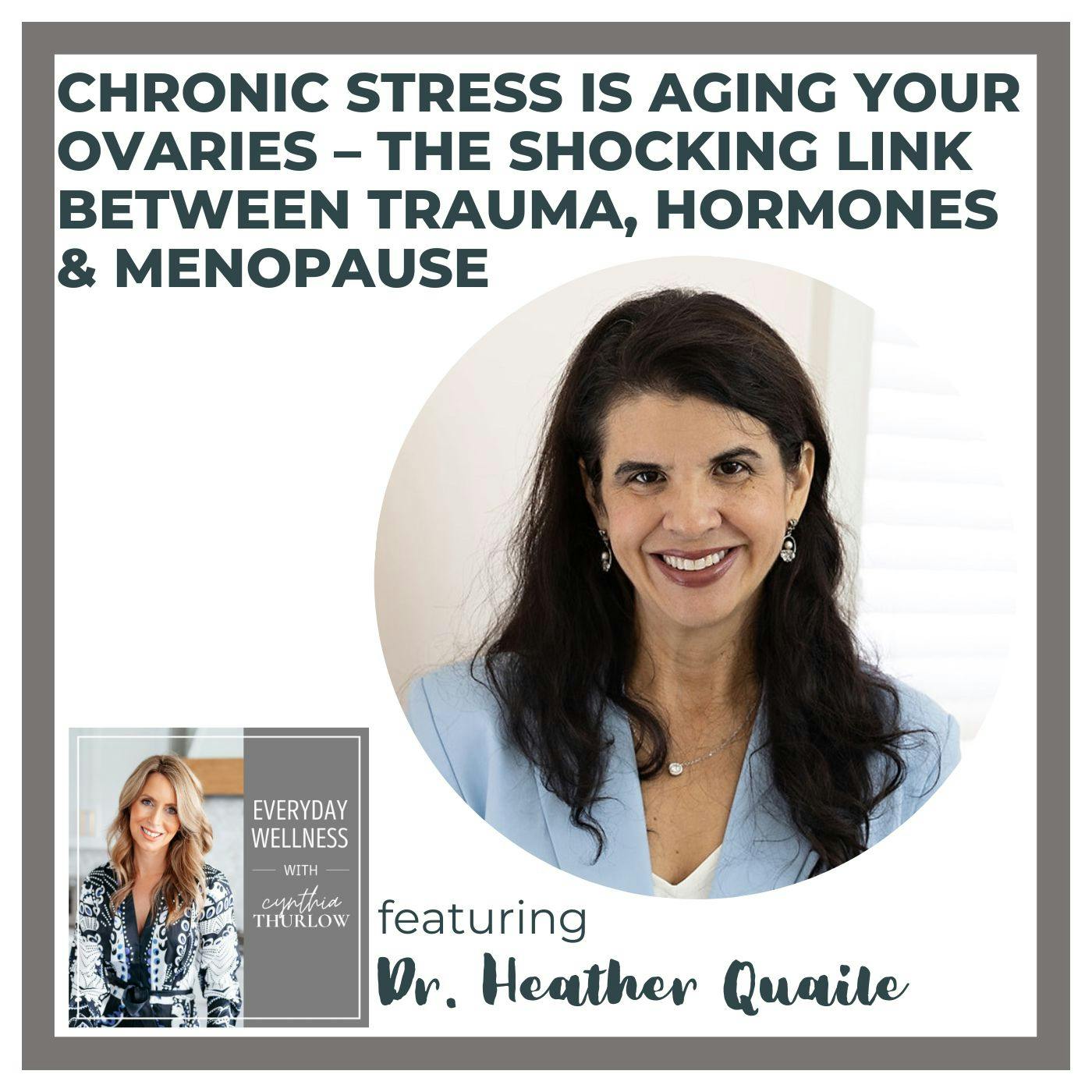Ep. 498 Chronic Stress Is Aging Your Ovaries – The Shocking Link Between Trauma, Hormones & Menopause with Dr. Heather Quaile
- Author
- Everyday Wellness™
- Published
- Sat 06 Sep 2025
- Episode Link
- None
Today, I am delighted to connect with Dr. Heather Quaile. She is a double board-certified women's health nurse practitioner and advanced forensic nurse with specialty training in female sexual medicine. Her training focused on integrative gynecology.
Today, we dive into trauma-informed care, defining big and little T trauma, examining how adverse childhood events impact gynecologic care, and clarifying how chronic stress and trauma affect ovarian aging. We discuss the role of recalibration of the nervous and autonomic nervous systems during perimenopause and menopause, and explore the importance of estrogen in supporting serotonin, dopamine, and adrenal health in middle age. We cover GLP-1s, reframing packaging around vaginal estrogen, FDA approval for testosterone, the new terminology of PET, and holistic management of low libido, and we also tackle the genitourinary syndrome of menopause, new terminology, barriers, self-advocacy, and the significance of pelvic floor Health.
This conversation with Dr. Quaile is truly invaluable. She is a most helpful resource on everything related to integrative gynecology, sexual medicine, and self-advocacy.
IN THIS EPISODE, YOU WILL LEARN:
How big and little T trauma differ
What trauma-informed care is, and why it is particularly relevant for women in perimenopause and menopause
Symptoms and behaviors that indicate trauma in women
How the interrelationship between estradiol and serotonin affects our worldview, self-perception, sleep, and relationships
The benefits of addressing any hormonal imbalances before using GLP-1s for weight loss
The pros and cons of gaining FDA approval for testosterone and commercializing it
Factors that could cause decreased libido in middle-aged women
The genitourinary changes that occur in different life phases of women, or with cancer, or when going through gender reassignment
How PET (progesterone, estrogen, and testosterone) terminology is evolving to include women outside of perimenopause and menopause
The five questions Dr. Quaile has in her DSDS (decreased sexual desire screener) for clinicians, to get to the root cause of hypoactive sexual desire disorder in patients
The importance of women being comfortable about advocating for themselves
Connect with Cynthia Thurlow
Follow on X, Instagram & LinkedIn
Check out Cynthia’s website
Submit your questions to [email protected]
Connect with Dr. Heather Quaile
